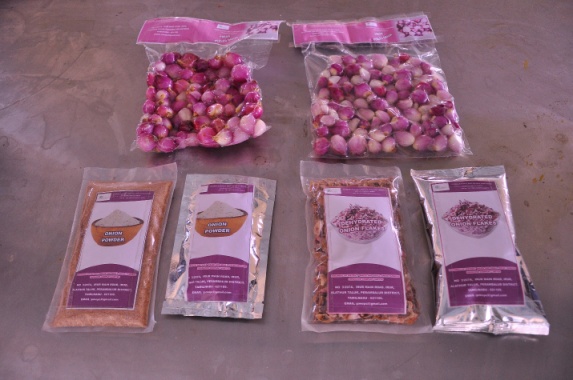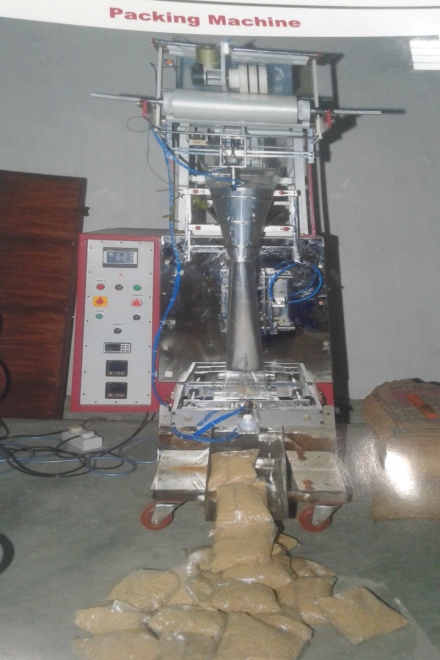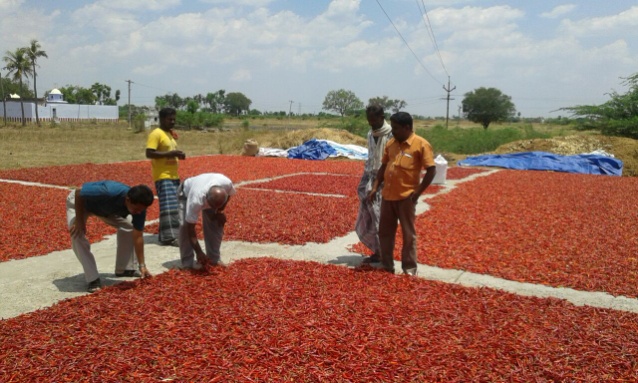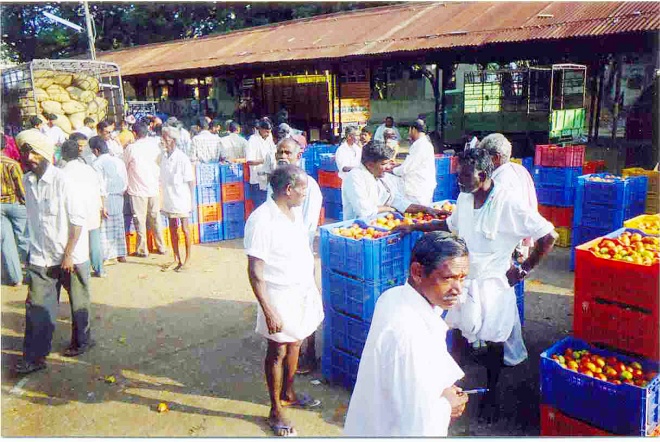Agricultural Marketing and Agribusiness Department (AMAD) in coordination with Departments of Horticulture and Agriculture, aims to enhance farmers' linkages to markets through
- Improving farmer access to markets
- promoting agri-enterprises
- Institutional strengthening and capacity building
Improving Farmer Access to Markets
The intervention, aims at creating more linkages between farmers and private sector besides strengthening of farmers' access to more traditional markets for better price discovery through reform and modernization interventions.
Farmer Producing Organisation (FPO)
FPOs will undertake various activities such as bulk purchase of inputs; and post-harvest management, quality control, grading, aggregation and marketing of produce. Expected benefits to FPO members are higher farmer prices through the combination of larger critical mass of saleable produce thereby providing economies of scale, savings in transaction costs, reaching out to distant markets, and strengthened negotiation positions, coupled with the added value achieved through cleaning, grading and packing.

FPOs under the project will be formed either as entirely new one or on the production clusters already formed by the Department of Agriculture and Horticulture. For this, members of existing Farmer Interest Groups (FIGs)/Common Interest Groups (CIGs) may also be considered besides new members who will be mobilized to form FIGS and FPOs. A minimum of 20-25 active farmers from existing or newly formed Farmer Interest Group (FIGs)/Common Interest Group (CIGs) will be organized and by federating 20-25 such groups, an FPO will be formed. FPO will therefore have not less than 500 members and there will not be any upper limit to enroll no of farmers to an FPO.
These FPOs will be guided by principles such as Voluntary and Open Membership, Democratic Farmer Member Control, Farmer-Member Economic Participation, Autonomy and Independence, Education, Training and information, Co-operation and networking among FPOs, concern for the Community, etc.
The project will form a minimum of 80 new FPOs during the project period. The FPO will have a General Body, Executive Body and Board of Directors and will be managed.
Supporting Existing Farmer Producer Organizations
The project will also support expansion of business by way of grant to execute FPOs registered as per Companies Act provided eligibility criteria framed for such a proposals in met by the FPOs. Inter alia, the criteria should include condition such as;
- 51% of the members of the existing FPOs should be from the sub-basin area.
- Minimum turnover of Rs. 25 Lakh /annum with additional condition of selecting the existing FPOs based on the annual business turn over from maximum in descending order to the minimum of Rs. 25.00 Lakh.
- Minimum 2 years audited balance sheet.
- Regulatory compliance of FPOs.
- Credit worthiness of the FPOs
- Paid up share capital (Rs. 1000/share: proposed
Smart Agri-Marketing Hub: Next Practices for Modernization, Automation and Digitization of Regulated Markets
It is proposed to implement in 3 Regulated Markets on pilot basis for implementation of modernization intervention through ICT and up gradation of infrastructures required for IAMP supported commodities. Proposed infrastructures are integrated pack house, grading, sorting hall and auction hall, etc., and other post-harvest infrastructures. The investment in infrastructural up gradation will yield its benefits by increased arrivals of fruits and vegetables and other commodities, supported by IAMP. To execute the project as pilot basis through diversification and post-harvest management, the budget provisions on 75:25 matching grant basis are made for
- Gap filling Infrastructure Facilities such as drying yard, pack house, godowns, auction halls and Post-harvest materials, machineries.
- Modernization with automation using ICT tools, app development with 3 selected Regulated Markets for enabling e-tendering system
- ISO Certification for 3 Selected Regulated Markets.
These interventions will improve the functioning of regulated markets. Infrastructures will be assessed on the needs and affordability of the Market committee on Capital investment. The Salient features learned or identified from the pilot study will provide a base for up scaling of other regulated markets.
Piloting e-Negotiable Warehouse Receipt:
The Department will pilot (e) Negotiable Warehouse Receipt model (e- NWR) for mitigating price risk to farmers on tripartite agreement among beneficiaries, private and public sector banks and Collateral Management agencies. Pilot investment is also proposed in 4 selected godowns adopting following 4 different approaches.
- Existing regulated market 1000 Mt storage godown/PACB (either actual amount or ceiling of Rs. 15.00 Lakh)
- New 1000 Mt godown closer to farms as back ended support (70:30 @ Rs. 30.00 Lakh from project fund)
- New 2000 Mt godown in Regulated Market/PACB (50:50 @ Rs. 100 Lakh from project fund)
- New 1000 Mt godown for agro based entrepreneur as back ended support (75:25 @ Rs. 25.00 Lakh from the project fun.
Promoting Agri Enterprises:
Agriculture and  Horticulture Department has planned for intensification and diversification of crop production activities, which leads to increased crop production.
In this context, absence of local entrepreneurship, the opportunities in agriculture are benefited by outsiders, particularly the urban businessmen and traders, leading to exploitation and deprivation of employment for the farmers. Considering the growing unemployment in rural areas and slow growth of the agricultural sector, it is necessary to tap the opportunities for promoting entrepreneurship in agriculture, which in turn can address the present problems related to agricultural production and profitability.
Horticulture Department has planned for intensification and diversification of crop production activities, which leads to increased crop production.
In this context, absence of local entrepreneurship, the opportunities in agriculture are benefited by outsiders, particularly the urban businessmen and traders, leading to exploitation and deprivation of employment for the farmers. Considering the growing unemployment in rural areas and slow growth of the agricultural sector, it is necessary to tap the opportunities for promoting entrepreneurship in agriculture, which in turn can address the present problems related to agricultural production and profitability.
Setting up of Agri Business Promotion Facility (ABPF)
For promoting Agri enterprises, foster backward and forward linkages in the value chains for agricultural products, facilitate access to finance for Micro, Small and Medium Agri Based Enterprises (MSMEs) and agribusiness entrepreneurs, the project will establish an Agri-Business Promotion Facility (ABPF).
ABPF will create a body of knowledge; facilitate the development of a network of market/producer linkages, Organizing interface workshops, consultative meetings, seminars with stake holders and banks. Assisting Micro, Small and Medium Agri Based Enterprises (MSMEs) to prepare proposals to access Government grant schemes and bank financing. It will encourage PPP mechanism which will facilitate crop based approaches and disseminate successful business models that emerge from the project's interventions.
Grant for Women entrepreneurs (50:50)
The project will promote agro entrepreneurship  by women entrepreneur in the area of value addition, food processing etc. Women farmer from the sub-basin who have undergone certificate training to be priority specified and acquired, minimum education qualification with capacity to invest for the business will be supported up to 50% of the total project cost or to a maximum of Rs. 5.00 Lakh whichever is less. The business plan prepared by the Consultancy firm will be sent to TNIAMP Cell and the business plan will further be scrutinized by the ABPF Cell and sent to TNIAMP Cell for approval with their objective in assessment and recommendations. Approved women entrepreneurs may avail the grant as back ended by contributing 50% after which the project would release 50% subject to a ceiling of Rs. 5.00 Lakh.
by women entrepreneur in the area of value addition, food processing etc. Women farmer from the sub-basin who have undergone certificate training to be priority specified and acquired, minimum education qualification with capacity to invest for the business will be supported up to 50% of the total project cost or to a maximum of Rs. 5.00 Lakh whichever is less. The business plan prepared by the Consultancy firm will be sent to TNIAMP Cell and the business plan will further be scrutinized by the ABPF Cell and sent to TNIAMP Cell for approval with their objective in assessment and recommendations. Approved women entrepreneurs may avail the grant as back ended by contributing 50% after which the project would release 50% subject to a ceiling of Rs. 5.00 Lakh.
Institutional Strengthening and Capacity Building:
The Government of Tamil Nadu Agriculture Marketing and Agri Business department have significant capacity gaps in agribusiness and agriculture marketing. Build up the technical capacity of its staff, the project would support technical trainings in agribusiness, agriculture marketing, supply chain management and other relevant topical issues; exposure and learning visits (domestic and international) to learn nuances of agribusiness development; Technical training like Market Intelligence, Reduction of Post-harvest losses, Food processing and value addition, Agri Entrepreneurship Development Program, Export promotion etc. through the institutions like MANAGE, NIAM etc.
Selected successful models will be taken for exchange / exposure visit. The knowledge gained from this model and it can be adapted to our existing model. So that it become a successful model in the state. These activities will create well educated, intelligent Agriculture Market environment in the State.




 Horticulture Department has planned for intensification and diversification of crop production activities, which leads to increased crop production.
In this context, absence of local entrepreneurship, the opportunities in agriculture are benefited by outsiders, particularly the urban businessmen and traders, leading to exploitation and deprivation of employment for the farmers. Considering the growing unemployment in rural areas and slow growth of the agricultural sector, it is necessary to tap the opportunities for promoting entrepreneurship in agriculture, which in turn can address the present problems related to agricultural production and profitability.
Horticulture Department has planned for intensification and diversification of crop production activities, which leads to increased crop production.
In this context, absence of local entrepreneurship, the opportunities in agriculture are benefited by outsiders, particularly the urban businessmen and traders, leading to exploitation and deprivation of employment for the farmers. Considering the growing unemployment in rural areas and slow growth of the agricultural sector, it is necessary to tap the opportunities for promoting entrepreneurship in agriculture, which in turn can address the present problems related to agricultural production and profitability. by women entrepreneur in the area of value addition, food processing etc. Women farmer from the sub-basin who have undergone certificate training to be priority specified and acquired, minimum education qualification with capacity to invest for the business will be supported up to 50% of the total project cost or to a maximum of Rs. 5.00 Lakh whichever is less. The business plan prepared by the Consultancy firm will be sent to TNIAMP Cell and the business plan will further be scrutinized by the ABPF Cell and sent to TNIAMP Cell for approval with their objective in assessment and recommendations. Approved women entrepreneurs may avail the grant as back ended by contributing 50% after which the project would release 50% subject to a ceiling of Rs. 5.00 Lakh.
by women entrepreneur in the area of value addition, food processing etc. Women farmer from the sub-basin who have undergone certificate training to be priority specified and acquired, minimum education qualification with capacity to invest for the business will be supported up to 50% of the total project cost or to a maximum of Rs. 5.00 Lakh whichever is less. The business plan prepared by the Consultancy firm will be sent to TNIAMP Cell and the business plan will further be scrutinized by the ABPF Cell and sent to TNIAMP Cell for approval with their objective in assessment and recommendations. Approved women entrepreneurs may avail the grant as back ended by contributing 50% after which the project would release 50% subject to a ceiling of Rs. 5.00 Lakh.